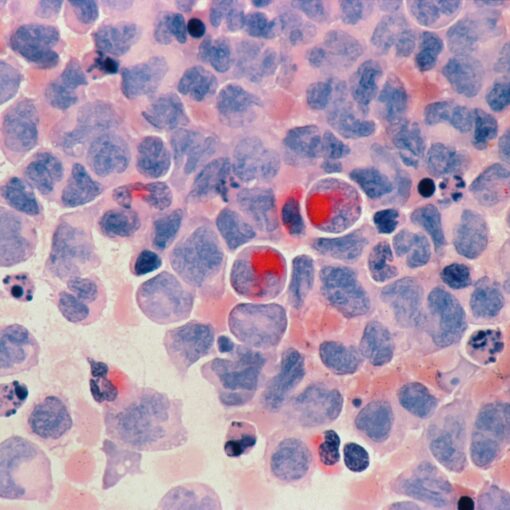In recent years, the incidence of cancer has doubled. Researchers believe that this is partly due to a lack of prevention and early detection programs. Changing lifestyles can help reduce the risk of cancer, and even cure it. There are many ways to decrease your chances of developing cancer: eating right, exercising, quitting smoking and drinking alcohol, protecting yourself from harmful UV rays, being mindful about how the environment impacts your health.
Key Concepts and Top Takeaways
– Eat a balanced diet rich in fruits, vegetables, and whole grains.
– Limit processed foods and reduce sugar intake for better health.
– Maintain a healthy weight through regular exercise and portion control.
– Avoid tobacco in all forms to lower cancer risk significantly.
– Limit alcohol consumption to recommended guidelines or less.
– Protect your skin from UV rays by using sunscreen daily.
– Get regular screenings based on age and family history of cancer.
– Stay informed about vaccinations that can prevent certain cancers.
– Manage stress through mindfulness practices like meditation or yoga.
– Educate yourself about cancer risks and advocate for your health.

Please Note: This post may contain affiliate links. If you click one of them, we may receive a commission at no extra cost to you. As an Amazon Associate, I earn from qualifying purchases.
The American Cancer Society estimates that there will be an estimated 1.6 million new cancer cases in the United States and 600,000 cancer deaths expected to occur by the end of 2017. With many preventable cancers occurring each year, it is imperative for all individuals to take steps to reduce their risk.
With a few simple adjustments in one's lifestyle, such as limiting alcohol consumption, eating healthier foods and being more physically active, many people can lower their risk for developing cancer.
In an effort to prevent cancer, you must change your habits. Carcinogens are everywhere- they lurk in the food we eat, the water we drink, and the air we breathe. The most important thing is to stop smoking, eating foods with high levels of nitrates (such as processed meats), limiting alcohol consumption, and reducing exposure to radiation and certain chemicals.
How Lifestyle Choices Can Promote The Development Of Certain Cancers
Cancer development is a complicated and often misunderstood process. Various lifestyle choices may increase your risk for developing certain cancers. For example, smoking tobacco and consuming excessive alcohol have been associated with an increased risk of lung cancer, mouth cancer, throat cancer, esophageal cancer, and liver cancer. Other lifestyle factors that can lead to the development of different types of cancers are poor diet, obesity, lack of exercise and exposure to carcinogenic substances such as radiation or toxic chemicals.

A recent study by JAMA Internal Medicine has found that there are ways to lower the risk of developing certain cancers. The way a person's lifestyle can affect cancer risk has been studied for decades in various countries, and it is now well-known that promoting a healthy lifestyle is important for cancer prevention. These findings have led to various campaigns to educate people about the importance of healthy living as well as encourage them to adopt healthier habits such as maintaining a healthy weight or not smoking cigarettes.
Cancers are often times related to lifestyle choices and the environment. Researchers in Nepal have found that people living in an area with high levels of air pollution were at greater risk for developing cancerous tumors. It's possible that these types of environments cause inflammation in the body, which can promote tumor growth.
Certain cancers may be associated with lifestyle choices and environmental factors, such as air pollution in Nepal, which increases a person’s risk for developing cancerous tumors.
The Long-Term Care Needs Of A Cancer Survivor
 The symptoms of cancer and its treatment can have a significant impact on the survivor’s quality of life. For many, these symptoms are magnified once they must live without the physical and emotional support from their family members. This is because cancer treatments often leave survivors with chronic pain, fatigue, weight gain, cognitive impairments, decreased immune system function, and financial challenges. All of these effects can lead to an increased risk for dementia in the long-term.
The symptoms of cancer and its treatment can have a significant impact on the survivor’s quality of life. For many, these symptoms are magnified once they must live without the physical and emotional support from their family members. This is because cancer treatments often leave survivors with chronic pain, fatigue, weight gain, cognitive impairments, decreased immune system function, and financial challenges. All of these effects can lead to an increased risk for dementia in the long-term.
Many cancer survivors feel that they will be able to return to the same life they had before the diagnosis. It is understandable, considering just how difficult it can be for a survivor to work or even maintain social relationships when undergoing intense treatment. However, cancer can have a long-term impact on one’s wellbeing and quality of life.
The average cost of a hospital stay is $3,400. The average out-of-pocket for Health Insurance is $1,500. Being diagnosed with cancer often means that the person has to change jobs or be unable to work because of treatment and can't afford Medicare or Medicaid coverage. A diagnosis of cancer can also mean a long-term care, which can cost over $250 thousand dollars per year.

Kevin Collier is a seasoned health writer at Otchut.com, specializing in over-the-counter medicines, common medical ailments, and general health topics. With a background in healthcare and a passion for making medical information accessible, Kevin aims to empower readers with knowledge to make informed health decisions. When he's not writing, he enjoys researching the latest in health trends and advocating for wellness in his community.






